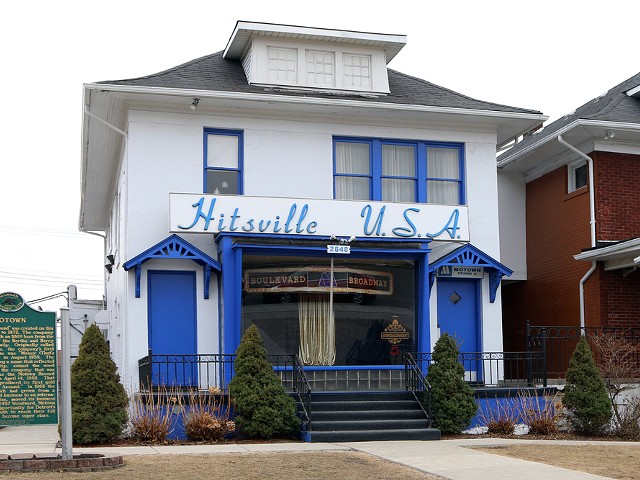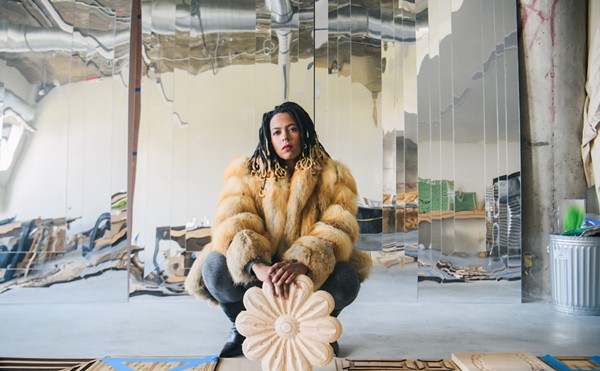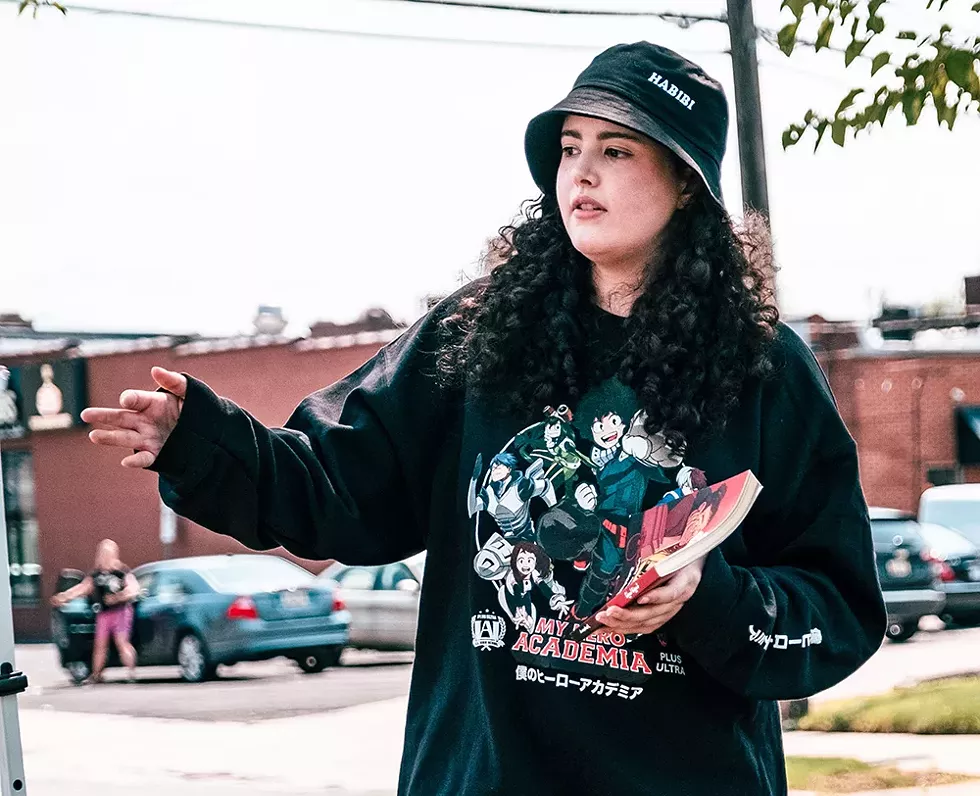
For many writers and artists from marginalized groups, the pressure to always represent their community is exhausting. The categorization of their work as “African American Literature” when written by a Black writer or “Arab American Stories” when written by an Arab writer can be limiting for someone who just wants to write fantasy.
That’s how Egyptian graphic novelist Deena Mohamed sees it. Even though her comics take place in Cairo and tackle socio-political issues, she wants them to be categorized properly — as speculative fiction instead of just another Arab story.
“I want my work to be respected for the content, not labeled as something just for Arab Americans, or the Arab option on the menu,” she explains. “Unfortunately, pretty much every minority has the same problem of their work only being seen on that level, just because that’s how books are sold.”
Mohamed is an artist in residence at the Arab American National Museum in Dearborn for the month of July. She’s using her time there to translate her comic book trilogy Shubeik Lubeik from Arabic to English. The 26-year-old illustrator lives in Cairo and is in Dearborn until the beginning of August when the residency ends. A small crowd of comic enthusiasts gathered in the sunny backyard of Green Brain Comics on Saturday, July 17 as Mohamed discussed the challenges of adjusting her work for an English-speaking audience.
In Shubeik Lubeik, which takes place in Cairo, wishes are sold in three tiers. First-class wishes are the most expensive, while third-class ones are the budget option.
“A third class wish is like a monkey’s paw,” Mohamed says. “The more expensive a wish is, the more exact it will be.”
The problem is that the majority of Cairo’s population can only afford third-class wishes which have been banned in European countries because they are unpredictable and dangerous. In the first book of the trilogy, we meet Aziza who buys a fake first class wish at a shady roadside stand. The genie in the bottle grants her wish to lose a few pounds by making her arms fall off.
Aziza — the book was named after the main character — takes the reader on a roller coaster of emotions with themes of loss, grief, and wealth inequality. It asks uncomfortable questions about race and class. Is happiness a human right that’s really available to everyone? What does it cost to be happy, and can people living in poor communities afford it? There’s also magic and dragons.
In a roundabout way, this first book, which was published back in 2015, is where Mohamed’s journey to Dearborn started. The book won Best Graphic Novel and Grand Prize at the Cairo Comic Book Festival in 2017. At that festival, she met a friend with whom she had been corresponding online from Maamoul Press, which is based in Michigan. They told her about the AANM residency and encouraged her to apply. From there, all the stars aligned.
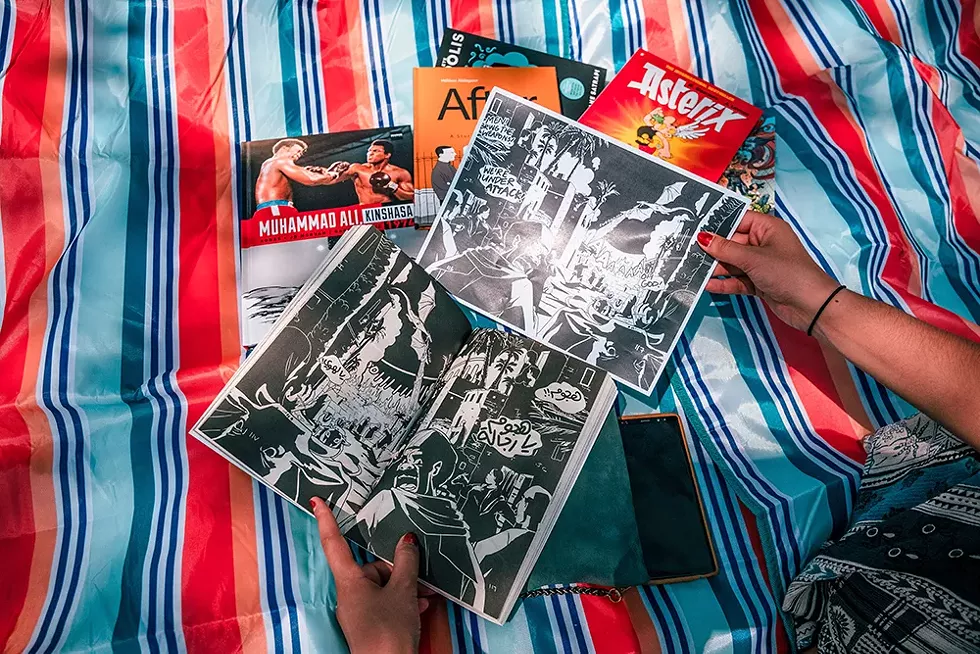
As often is the case when creating art across language and cultural lines, some things just don’t translate and the context gets lost. It forces artists who want to appeal to different audiences to choose which is more important — being relatable or upholding the artistic integrity of their work.
“I started off with a webcomic that was on Tumblr in English and it talked about Islamophobia because that made sense for an American audience. We never think about Islamophobia in Egypt, because everyone is Muslim,” Mohamed explains. “When I started translating the comic into Arabic, I was talking about things like sexual harassment which was more topical for an Egyptian audience.”
The webcomic she’s referring to is Qahera, a series she started in 2013 about a Muslim superheroine who wears a hijab. Qahera’s superhearing alerts her when someone is about to say something Islamophobic or misogynistic toward Muslim women so she can go to the scene and set them straight.
The webcomic became immensely popular and has been featured on the Washington Post and BBC, among others. The more popular Qahera became, the more Mohamed felt boxed in as an artist who was expected to always make political commentary in her work.
“I didn’t enjoy having to talk about those issues all the time. I was 18 when I first started Qahera and even though I’m grateful for it, I felt like I had to do more for me,” she explains. “I love fantasy and long-form stories so that’s what I decided to do with Shubeik Lubeik, though it still does touch on some issues that are important to me.”
Issues with localization and how much you explain culture to make it more palatable for readers who may not understand certain references are common for Mohamed. At the Green Brain Comics workshop, she expresses concerns over how the name Shubeik Lubeik will be received by American readers.
“‘Shubeik Lubeik’ is kind of a nonsense play on words,” she says. “It’s like ‘Hocus Pocus’ — a made-up phrase whose meaning isn’t literal, but everyone pretty much knows what it means. Basically, it’s what a genie would say when coming out of its bottle. Maybe the closest translation is ‘your wish is my command,’ but that’s not a great title.”
When she poses the question to the crowd whether she should try to translate Shubeik Lubeik into English or change the spelling slightly so the pronunciation is more obvious for English speakers, my response is neither.
But she quips back, “Translation is not just about changing words, it’s about reframing it for a different audience. A lot of translation is really about marketing.”
The good thing is that Mohamed gets to retain creative freedom over the translation since she is doing it herself. Books that are translated into English from a foreign language are rarely done so by the writer themselves.
“There are a lot of background jokes in the book that if you didn’t live in Cairo, you might not know and if something loses context because it’s in English now, I can just add a few panels to explain it a little better instead of getting completely lost. I’m more concerned about the story working” she says.
Even with that said, she’s adamant about not changing certain things like Arabic signs in the background and the orientation of the comics being from right to left, as she originally wrote them.
“In the US, it’s like the publishers think it’ll be too foreign, but the point of reading something from another culture is to immerse yourself in a different world. The Arabic signs in the background are part of the setting which is Cairo,” she says.
Mohamed’s residency at the museum in the city with the largest proportion of Arab Americans in the country is not lost on her. The AANM is the only museum dedicated to celebrating Arab American culture and history in the US. Its residency program gives emerging and established Arab artists from across the globe the chance to add to that living history while sharing their art with the community. In the last year alone, the museum has fostered a diverse range of artists from dancers to documentary filmmakers and poets.
“We don’t even have a lot of museums that celebrate culture in Egypt, so I think [the AANM] is very important for this community,” she says. “Even though I’m not American, I can appreciate it because cultural institutions are a lifeline for lots of artists.”
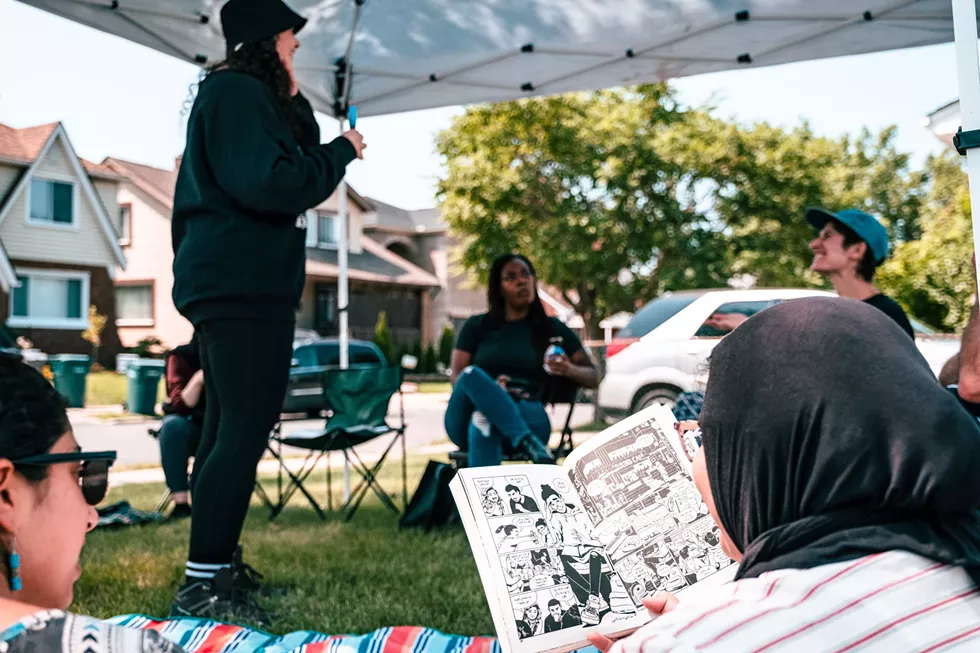
Dearborn feels much like Cairo for Mohamed. Her favorite foods are widely available and there’s no misunderstanding when she instinctively speaks Arabic to the supermarket clerk without even realizing it. Everything is familiar, except the ice cream trucks.
“What is that? Are they selling ice cream… out of a van?” she blurts out while in the middle of showing her translation progress to the crowd as the neighborhood truck strolls by. It seems less foreign when she realizes they have Spiderman popsicles — her favorite character. It’s both tragic and comical when it later melts off the popsicle stick into her hand, but she just laughs it off and continues showing us her comics.
The English translation of all three volumes of Shubeik Lubeik is expected to be published by Pantheon Books in Spring 2022. Mohamed plans to leave copies of the original Arabic versions with the AANM library.
This story was made possible through a partnership with the Race and Justice Reporting Initiative and the Detroit Equity Action Lab at the Damon J. Keith Center for Civil Rights.
Stay connected with Detroit Metro Times. Subscribe to our newsletters, and follow us on Google News, Apple News, Twitter, Facebook, Instagram, or Reddit.


